I have this simple binary correlation method, It beats table lookup and Hakmem bit twiddling methods by x3-4 and %25 better than GCC's __builtin_popcount (which I think maps to a popcnt instruction when SSE4 is enabled.)
Here is the much simplified code:
int correlation(uint64_t *v1, uint64_t *v2, int size64) {
__m128i* a = reinterpret_cast<__m128i*>(v1);
__m128i* b = reinterpret_cast<__m128i*>(v2);
int count = 0;
for (int j = 0; j < size64 / 2; ++j, ++a, ++b) {
union { __m128i s; uint64_t b[2]} x;
x.s = _mm_xor_si128(*a, *b);
count += _mm_popcnt_u64(x.b[0]) +_mm_popcnt_u64(x.b[1]);
}
return count;
}
I tried unrolling the loop, but I think GCC already automatically does this, so I ended up with same performance. Do you think performance further improved without making the code too complicated? Assume v1 and v2 are of the same size and size is even.
I am happy with its current performance but I was just curious to see if it could be further improved.
Thanks.
Edit: Fixed an error in union and it turned out this error was making this version faster than builtin __builtin_popcount , anyway I modified the code again, it is again slightly faster than builtin now (15%) but I don't think it is worth investing worth time on this. Thanks for all comments and suggestions.
for (int j = 0; j < size64 / 4; ++j, a+=2, b+=2) {
__m128i x0 = _mm_xor_si128(_mm_load_si128(a), _mm_load_si128(b));
count += _mm_popcnt_u64(_mm_extract_epi64(x0, 0))
+_mm_popcnt_u64(_mm_extract_epi64(x0, 1));
__m128i x1 = _mm_xor_si128(_mm_load_si128(a + 1), _mm_load_si128(b + 1));
count += _mm_popcnt_u64(_mm_extract_epi64(x1, 0))
+_mm_popcnt_u64(_mm_extract_epi64(x1, 1));
}
Second Edit: turned out that builtin is the fastest, sigh. especially with -funroll-loops and -fprefetch-loop-arrays args. Something like this:
for (int j = 0; j < size64; ++j) {
count += __builtin_popcountll(a[j] ^ b[j]);
}
Third Edit:
This is an interesting SSE3 parallel 4 bit lookup algorithm. Idea is from Wojciech Muła, implementation is from Marat Dukhan's answer. Thanks to @Apriori for reminding me this algorithm. Below is the heart of the algorithm, it is very clever, basically counts bits for bytes using a SSE register as a 16 way lookup table and lower nibbles as index of which table cells are selected. Then sums the counts.
static inline __m128i hamming128(__m128i a, __m128i b) {
static const __m128i popcount_mask = _mm_set1_epi8(0x0F);
static const __m128i popcount_table = _mm_setr_epi8(0, 1, 1, 2, 1, 2, 2, 3, 1, 2, 2, 3, 2, 3, 3, 4);
const __m128i x = _mm_xor_si128(a, b);
const __m128i pcnt0 = _mm_shuffle_epi8(popcount_table, _mm_and_si128(x, popcount_mask));
const __m128i pcnt1 = _mm_shuffle_epi8(popcount_table, _mm_and_si128(_mm_srli_epi16(x, 4), popcount_mask));
return _mm_add_epi8(pcnt0, pcnt1);
}
On my tests this version is on par; slightly faster on smaller input, slightly slower on larger ones than using hw popcount. I think this should really shine if it is implemented in AVX. But I don't have time for this, if anyone is up to it would love to hear their results.
